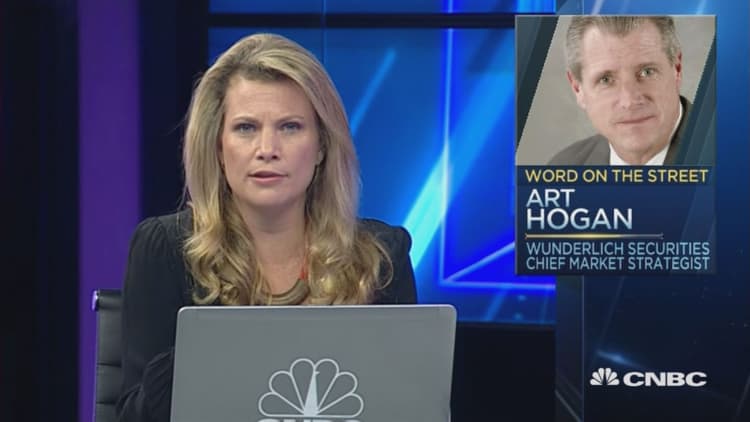
Bond yields are falling, with no end in sight — yet.
The question of just how low U.S. Treasury bonds could go was once met with the expectation of "zero," but now it's not even clear they would stop there.
"I think what these yields are telling you is [there are] worries about the global situation and a re-pricing of monetary policy," Joshua Feinman, Deutsche Asset and Wealth Management chief global economist, said on CNBC's "Squawk Box" Wednesday morning.
Both the U.S. 10-year Treasury yield and the 30-year Treasury yield, at 1.35 percent and 2.12 percent Wednesday morning before markets opened, are hovering near all-time lows. Several key market experts, including Allianz chief economic adviser Mohamed El-Erian, believe the U.S. 10-year Treasury yield could slip below the 1 percent mark
Internationally, more bonds have slipped into negative territory, in part thanks to the abundance of cheap funds from various central banks. For most of the last 30 years in the United States, bond yields have trended lower, but recent market shifts could force returns to 0 percent, or even lower.
Some market watchers are certain that's where Treasury yields are headed.
"It's crazy what we're seeing. The entire Swiss yield curve is negative," said Rebecca Patterson, Bessemer Trust CIO, speaking on CNBC's "Squawk Box" Wednesday. "I'm watching two things: European banks and U.S. yields. It fees to me the U.S. 10-year [yield], I don't know when, but I think we're going to break 1 percent."
It's something big banks have been told to plan for, and something even Warren Buffett said he's unhappy about (Wall Street banks' stress test contingency plans include dumping negative rates on corporate clients — such as Buffett himself — but not on Main Street consumers).

It's also something that has the ability to hurt Wall Street's key businesses, like mortgages, by virtue of the fact that big banks will keep making less on mortgage products as long as rates are either low, or falling. The Brexit is being partially blamed for forcing the Federal Open Market Committee to push back its plans to hike interest rates, and if the next leg of the scenario forces the Fed to cut rates rather than increase them, it will hamper big banks that had depended on the central bank to prop up their net interest margins.
Some say seeing bond returns plummeting anew is a canary in the coal mine.
"This is just the beginning," said Kathy Lien, director of FX strategy with BK Asset Management, speaking on "Squawk Box" this morning. We're "starting to see dominoes fall. Yesterday, the big news was all those property funds that halted redemptions. You're going to see that spill over into the banking sector, you're going to see that spill over to property prices, maybe even the high level of consumer debt is going to cause individuals to go belly-up."
—CNBC's Fred Imbert contributed to this report.


